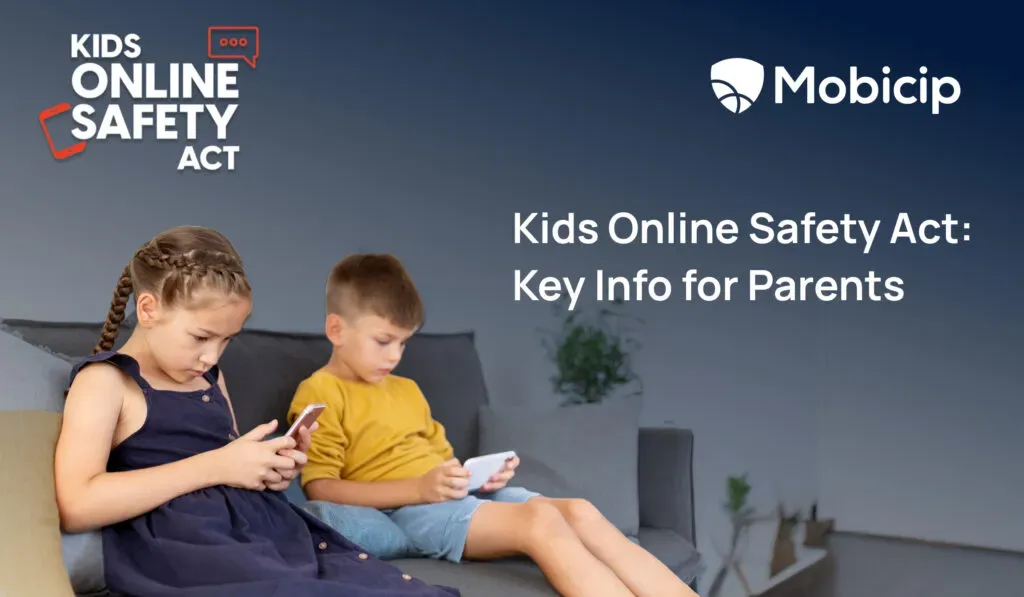The Kids Online Safety Act (KOSA) is paving the way for the first significant updates to children’s online safety legislation in over two decades. Reintroduced in Congress, this critical bill aims to address the alarming risks children face while navigating the digital landscape, particularly on social media platforms. As the tech industry’s influence continues to grow, ensuring robust online safety for kids has become a pressing issue, resonating with both lawmakers and concerned parents alike. With plans to enforce stricter regulations on tech companies, KOSA emphasizes a commitment to protecting our youth from potential online hazards. By focusing on children’s online safety, this legislation strives to create a safer, more secure environment for future generations in an increasingly interconnected world.
Known alternatively as KOSA, the Kids Online Safety Act embodies a pivotal moment for children’s digital welfare in an age dominated by technology and social media. This proposed social media legislation seeks to reform how the tech industry interacts with younger audiences, particularly concerning privacy and mental health issues. Advocates argue for enhanced safeguards that could revolutionize online safety for kids, preventing exposure to harmful content and improving age verification processes. As various global movements advocate for better protections, the importance of these tech industry regulations cannot be overstated. The conversations surrounding KOSA reflect a growing recognition of the need to prioritize children’s welfare in our ever-evolving online environments.
Understanding the Kids Online Safety Act (KOSA)
The Kids Online Safety Act, often abbreviated as KOSA, marks a significant stride in addressing children’s online safety in a world dominated by digital technologies. This legislation aims to impose new regulations on the tech industry, ensuring that companies take proactive steps to protect young users from potential online harms. By defining a “duty of care,” KOSA seeks to hold tech giants accountable for the well-being of children using their platforms, reflecting a growing recognition of the issues associated with children’s online safety.
As society grapples with the impacts of social media on mental health, KOSA has emerged as a pivotal response. Endorsed by notable health organizations like The American Academy of Pediatrics, this bill represents a concerted effort to enhance privacy protections and introduce stricter age verification processes across social media platforms. By aiming to minimize harmful interactions and excessive Internet usage among young people, KOSA signifies a turning point in children’s online safety legislation.
The Legislative Journey of KOSA
The legislative journey of the Kids Online Safety Act has been marked by its reintroduction after facing delays in Congress. Originally proposed in 2024, the bill garnered significant bipartisan support, spurring hopes for its swift passage. Senators Marsha Blackburn and Richard Blumenthal have been pivotal in reviving this crucial piece of legislation, emphasizing the urgent need to combat online exploitation of children. The ongoing discussions reflect a strong commitment to advancing children’s online safety amidst a rapidly evolving digital landscape.
Despite its promising beginnings, KOSA’s path has not been without hurdles. The bill faced pushback from House Speaker Mike Johnson, who warned against rushing its passage without thorough consideration. This caution highlights the delicate balance lawmakers must maintain between protecting children’s rights and ensuring the protection of free speech. The unfolding saga of KOSA underscores the complexities involved in creating effective social media legislation that resonates with a diverse range of stakeholders.
Controversies Surrounding the Kids Online Safety Act
As with many legislative initiatives, the Kids Online Safety Act has ignited passionate debates. Central to the controversy are concerns regarding free speech and potential censorship. Advocacy groups, including the ACLU, argue that KOSA could infringe upon First Amendment rights, leading to questionable content moderation practices. This has raised alarms among various sectors, especially from organizations representing LGBTQ+ communities, who fear the bill might foster discrimination under the guise of safeguarding children.
In response to these valid concerns, amendments have been proposed to KOSA, aiming to clarify its intent and applications. Proponents of the bill strive to ensure that it does not empower censorship by government entities, but rather reinforces digital environments that prioritize safety and well-being for children. The ongoing dialogue about KOSA exemplifies the challenging landscape policymakers navigate when proposing social media regulations, where the stakes for both children’s safety and free expression are significantly high.
Current Status of the Kids Online Safety Act
As of now, the Kids Online Safety Act is back on the Congressional agenda, with advocates expressing optimism about its prospects. With revisions made to address earlier objections, there is renewed hope that lawmakers will move forward with the legislation that aims to bolster protections for young users against the perils of the online world. The bill currently awaits additional support, with an eye on garnering the necessary backing to secure its passage into law.
Should KOSA successfully make its way through Congress, it would represent a groundbreaking change in how online platforms interact with children. Supporters believe that it will provide a framework for necessary tech industry regulations that prioritize children’s online safety while also balancing the rights of users. The outcome of KOSA’s journey through the legislative process will undoubtedly echo across the tech landscape, setting a precedent for how future laws can evolve to meet the demands of a digital society.
The Global Context of Children’s Online Safety Legislation
The discussion surrounding the Kids Online Safety Act is occurring against a backdrop of global movements toward stronger protections for children’s online safety. For instance, in Australia, a recent law was passed to ban social media usage for individuals under 16, highlighting a growing recognition of the urgent need to address children’s online behaviors worldwide. This international dialogue is essential, as it emphasizes the urgency of enacting effective measures that transcend borders.
As different nations enact varying social media legislation, including stringent age verification processes and bans on harmful content, the call for a comprehensive approach similar to KOSA becomes even louder. Countries all over the world are evaluating how best to balance technology access and children’s safety, reflecting a shared responsibility to prioritize the welfare of future generations in the digital age.
The Role of Health Organizations in Supporting KOSA
Health organizations have emerged as critical supporters of the Kids Online Safety Act, emphasizing the potential mental and physical health benefits for children. Groups like The American Academy of Pediatrics have pushed for legislative change to safeguard children from the adverse effects of excessive screen time and harmful online interactions. Their advocacy underscores how KOSA aligns with broader health initiatives aimed at promoting the well-being of youth in a digital society.
These organizations argue that by implementing measures outlined in KOSA, such as enhanced privacy protections and parental control tools, children can have a safer online experience. The collaboration between health experts and legislators is crucial, as it presents a united front in addressing the multifaceted challenges posed by the digital landscape. This synergy is necessary for developing frameworks that effectively balance the benefits of technology while shielding young users from its potential harms.
Advocacy for Safer Digital Spaces for Children
The advocacy surrounding the Kids Online Safety Act reflects a broader societal commitment to creating safer digital environments for children. Activists and concerned groups are rallying for comprehensive regulations that not only hold tech companies accountable but also empower parents and guardians with the tools needed to monitor and guide children’s online activities. This shift recognizes that children’s online safety is a collective responsibility.
Through advocacy efforts, there’s a growing realization that proactive measures are essential in guarding against the risks associated with children’s engagement with technology. By ensuring that legislation like KOSA is implemented effectively, stakeholders can help foster environments that prioritize children’s safety, allowing them to navigate the digital world confidently and securely. The momentum for such changes is indicative of society’s evolving understanding of the critical importance of children’s online safety.
Key Features of the Kids Online Safety Act
The Kids Online Safety Act is designed with several key features aimed at enhancing the protection of minors in the online space. These features include regulations that require tech companies to implement age verification processes and limit certain design features that may promote addictive behaviors among children. By focusing on these critical aspects, KOSA seeks to mitigate potential risks that young users face daily.
In addition to age verification measures, KOSA emphasizes the importance of parental control tools that empower guardians to manage their children’s online experiences effectively. By putting these regulations in place, the bill aims to create a safer landscape where children’s rights are prioritized, and tech companies are held accountable for their role in protecting young users. Such strategic features highlight the commitment to reforming the digital ecosystem to prioritize the safety and well-being of children.
The Future of Kids Online Safety Legislation
Looking ahead, the Kids Online Safety Act represents a possible turning point in the landscape of children’s online safety legislation. The ongoing development and potential passage of KOSA could pave the way for similar initiatives, leading to a robust framework for protecting minors in the rapidly changing digital environment. As public awareness increases regarding the mental and emotional toll of excessive internet exposure, the urgency for meaningful regulations has never been higher.
The future of children’s online safety legislation will likely hinge on continued public advocacy, informed policy-making, and the tech industry’s willingness to adapt to new ethical standards. Children’s welfare must remain at the forefront of digital innovation, fostering a culture where safety, privacy, and mental health are prioritized within online platforms. The evolution of KOSA and similar legislation will undoubtedly shape the trajectory of how society addresses the challenges of the digital age, ensuring a safer online world for children.
Frequently Asked Questions
What is the Kids Online Safety Act and what does it aim to achieve?
The Kids Online Safety Act (KOSA) is legislation designed to enhance children’s online safety by implementing a ‘duty of care’ for tech companies. It aims to protect minors from harmful interactions online and address privacy and mental health concerns related to excessive Internet use and social media challenges.
How does the Kids Online Safety Act address the issue of children’s online safety?
KOSA targets children’s online safety by mandating tech companies to take proactive measures against potentially harmful content and interactions. It aims to improve parental control tools and limit design features that may contribute to addictive behaviors among children.
What are the main controversies surrounding the Kids Online Safety Act?
The Kids Online Safety Act has faced backlash primarily regarding First Amendment rights, with critics arguing it may lead to censorship of online content. Advocacy groups, including the ACLU, have raised concerns that the bill could empower officials to decide what constitutes harmful content, potentially infringing on free speech.
What bipartisan support does the Kids Online Safety Act have?
The Kids Online Safety Act has garnered bipartisan support in Congress, as lawmakers from both parties recognize the need to enhance protections for children online amidst rising mental health concerns associated with social media and Internet use.
How does the Kids Online Safety Act compare to similar legislation in other countries?
Similar to Australia’s social media ban for users under 16, the Kids Online Safety Act aims to create stricter regulations for the tech industry regarding children’s online engagement. It reflects a growing global consensus on the importance of safeguarding minors in the digital landscape.
What key features are included in the revised version of the Kids Online Safety Act?
The revised version of the Kids Online Safety Act includes refined regulations to limit addictive design features, enhance parental controls, and clearly articulates the responsibilities of tech companies to protect children’s online experiences.
Why is the Kids Online Safety Act considered urgent legislation?
The Kids Online Safety Act is viewed as urgent due to the increasing prevalence of online threats to children’s well-being, including mental health risks associated with social media. Advocates argue that timely action is necessary to update protections that have not evolved since the late 1990s.
Where does the Kids Online Safety Act currently stand in Congress?
As of now, the Kids Online Safety Act is back in Congress, awaiting support for passage. Advocates are hopeful that recent amendments will address previous concerns, and the bill will advance towards potential approval and presidential signing.
| Key Points | Details | |
|---|---|---|
| Kids Online Safety Act (KOSA) Overview | A proposed law aimed at enhancing online safety for children. | |
| Bipartisan Support | Gaining support from both political parties and attention from tech companies. | |
| Privacy and Mental Health Focus | Aims to protect children’s privacy and mental health related to social media use. | |
| Duty of Care | Tech companies must implement measures to prevent harmful interactions. | |
| Controversies Surrounding KOSA | Concerns about censorship and First Amendment rights are prevalent among critics. | |
| Current Status | Awaiting further support in Congress and possible endorsement by President Biden. | |
Summary
The Kids Online Safety Act aims to provide better online protections for children, addressing the growing need for safety measures in a rapidly evolving digital world. With its bipartisan backing and the support of health organizations, this legislation hopes to tackle critical issues such as children’s privacy and mental health, while ensuring that tech companies fulfill a responsibility to safeguard young users. The ongoing debates illustrate the complexity of achieving a balanced approach that protects kids without infringing on free speech rights.



